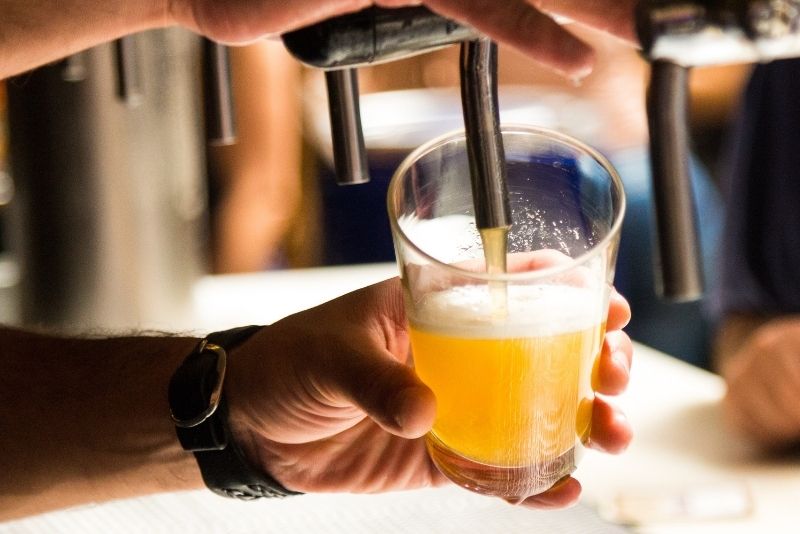How to start a microbrewery

Like the takeaway kitchen revolution, aka ‘dark kitchens’, the microbrewery industry in the UK is booming.
Once, craft lagers were a novelty, now it’s harder to find a pub that doesn’t sell a ‘local finest’. Many craft beer makers are also focusing on diversity and fair equity distribution, so the regular ‘pint’ has grown to provide more of a social commentary for some.
The carbon footprint is also something that appeals to many pubs who buy in local beer. ‘Sustainable brewing’ remains at the forefront of many small brewery business plans, many of which uses energy from renewable sources, and of course ‘drinking local’ cuts import carbon!
According to Statista, the UK brewing industry enjoys a £9 billion turnover a year on average. In 2021, craft beer ‘Camden Hells Lager’ ranked as the leading craft beer in the UK, with sales amounting to approximately £73 million. Another success story is BrewDog, who started off small with just 37 staff in 2010! They thought outside the box and crowdfunded to finance expansion, became the first carbon negative brewery in the midst of a pandemic, and are now popping up on the UK High Street, with their eyes on Vegas!
The good news is, there is still room for several brands. While many are setting up to sell on their own small premises, or online as a ‘side hustle’, there is also the option of brewing your own – for your own.
What is a microbrewery?
It may come as a surprise but to be labelled as a microbrewery, you will need to output at least 1,000 barrels a year. Often microbreweries start out as enthusiasts, so it can be hard to know exactly where to start and what to expect.
Hopefully, our top-level guide will offer you a useful starting point or checklist.
Insuring a microbrewery
As a rule of thumb, you are unlikely to need specific insurances if you are brewing as a hobby. However, the moment you take the next step and begin to sell your beer, you need to consider specific business insurances.
“We found that most microbreweries are not properly insured!” says Nikki Kyriacou, business insurance specialist at A-Plan Insurance. “There are very few insurers that actually cover breweries and distilleries as a specialism, so we started to look into it, to support the many microbreweries popping up in our communities now.”
“The key to microbrewery insurance is to cover the different risks associated with it. This can include Public Liability, Theft Cover (includes theft of kegs!), Material Damage to cover buildings, equipment and stock, Business Interruption, Goods in Transit and possibly Employer’s Liability if you have employees.
“Product Liability is also worth considering from the outset as, if something does go wrong and you or your microbrewery are sued for compensation, you’ll be covered in the event of a claim. This can make all the difference for a small business who could find their business profits hit hard by a compensation payout. The question is whether you could afford to pay compensation in the event of a claim, and if not, talk to your insurer to ensure your business is effectively protected.”
“One of the joys for many microbreweries is the festival scene. While liabilities will extend to events, it’s worth flagging that, if you are taking a vehicle, they will need to be covered under a separate policy.
“Many breweries also operate a ‘taproom’. This is where a brewery sells 25% or more of their crafted beer on-site (or selling cans to-go), which can be a great experience for the brewery and the community. It’s vital to have Public Liability in place for this.
“If your taproom also offers food, you’ll need to have the right insurance in place for that too. Many taprooms invite local catering vans onsite as opposed to cooking their own food and, while each caterer would need their own cover, we do cover food trucks too!
“The best thing to do is to meet your broker and discuss everything related to your business, because each is very different.”
Setting up a home brewery?
If you are still starting out, considering selling online, at festivals or just enjoying in your custom-built home pub-shed, there are still some important things to consider.
Talk to your broker about insuring the trading business to begin with.If you are brewing at home, in an outbuilding such as a shed, or even your home kitchen, your home insurance may not cover you so check with your current provider.Also, if you do sell your craft beers online you will need Product Liability insurance to protect your pocket should something go wrong.If you are brewing for a hobby, you wouldn’t necessarily need insurance at all. However, the minute you do start to sell your beer, you will.
Talk to your broker, even just to ask about any additional cover that you may need. We know that breweries can come in all shapes and sizes so would be happy to guide you through your options.
If you are considering investing in a microbrewery, make sure your kit is effectively insured from the outset. Need advice? Contact your local business branch who would happily answer any questions you have.







